Flávio Kebras is a Portuguese guitarist born in the 90s who started his dedication to music in 1998. As he felt different from all other children, he started to focus his energies and intelligence in self-taught guitar learning. “Kebras” as he is popularly known, got his name in the adolescence after nights of partying and drinking with friends who were rare, because even in the most fun phase of life he traded the favorite diversions of that age for the tireless hours with his guitar. At the age of 15 he started to realize his Afterbleeding project, which culminated the EP “Paths of Decimation”, in 2019. In that same year he started work on his Kebras solo project, which resulted in the album “P.A.T.O”. He also recently dropped the single “Last Spark Of Sanity” via DyMM Records from Portugal.
- Can you tell us a bit about where you come from and how you got started?
Kebras: Hello, and thank you for this opportunity in the first place! I’m from Portugal, more specifically from a city called Barreiro. I started out very young, maybe 3 or 4 years old on keyboards; I (barely) remember a friend of my grandmother coming to our house and telling that musical education is something very important in a growth of a child, and proceeded to give me an old Casio organ. I had no idea what I was doing, but I would spend hours upon hours playing it and had a lot of fun!
- What inspired you and made you want to learn guitar in the first place?
Kebras: My mother and grandmother gave me the idea of playing the guitar. At first I was not interested, but later gave it a try, bought an acoustic guitar, started to make sounds on it and it was the same process of the organ.
- Who were your first and strongest musical influences?
Kebras: Back in the day, I was very deep into extreme electronic music due to my mother’s musical tastes. On school, I ended up meeting a kid who listened to Metal and presented me some bands like Korn, Metallica, Slipknot, and so on. I ended up liking it a great deal, but once my mind got adjusted to that, I felt the need to search for more extreme stuff. The biggest musical influence which shaped my musical taste and direction was undoubtedly Spawn of Possession. There were also other bands like Disgorge (USA), Deeds of Flesh, Cannibal Corpse, Suffocation, Necrophagist, Vile, Visceral Bleeding, Dying Fetus, Gorgasm and Regurgitate who had a big impact on me, and Arch Enemy was crucial regarding the soloing proclivities. Along that, I listened to electronic music styles like Gabber, Hard Trance, Jungle and Drum ‘n’ Bass, which gave me a different sense on heaviness, groove and melody than Metal. With time, almost anything could inspire me: ideas could randomly pop up in my head by no apparent motive, I could create a melody by listening to a machine working, I randomly could start listening to opera, some ethnical instrument…anything goes.
- What was your first guitar?
Kebras: It was an acoustic guitar I bought on a local shop. My first electric guitar was an Aria, but I can’t remember the model. It was that classic three-single-coil Fender imitation model. Oh, how that guitar suffered…
- For most artists, originality is first preceded by a phase of learning and, often, emulating others. What was this like for you? How would you describe your own development as an artist and music maker, and the transition towards your own style?
Kebras: I was more of the type of having the ideas but didn’t know how to express them. I didn’t do much covers because I would end up without patience or bored (but I must admit that it played a significant role on my mindset of not getting scared to play really difficult stuff); I’d search for band tabs to know how certain parts were played, trying to interpret the composition my way and applying that to my own (developing) style, instead of wanting to do something similar to other artists or emulate them. Guitar Pro was a huge game changer for me, because not only I could clearly see how bands composed and shaped different patterns, but also because I started to put my ideas there – independently if I could play them or not – and then actually taking the time, dedication and patience to bring that ideas to life. I paid very close attention to the mechanics of what I was doing, in an attempt to optimize my technique, my compositions, and overall shortening the distance between the idea in my head and reality. In short, my ideas evolved and I had to keep up with them by improving the technical part, perspective and knowledge, resulting in bilateral and complementary growth.
- Could you tell us something about the recording of your debut solo release, “P.A.T.O”, and what inspired it?
Kebras: It started as some disperse ideas I had stored which did not fit into my other Afterbleeding band, and a “do I dare to do something which involves more styles of music than Metal?” mindset, which later led me to start paying attention, define what I specifically wanted – majorly, something with a lot of feel, derived from my various states of mind, and a dark atmosphere – and polish it into the tracks.
- What is the idea behind the epic cinematic sound of your latest single “Last Spark of Sanity”?
Kebras: Actually it was a melody I had in my head but didn’t know in which instrument I’d put it to sound good. I did some deconstruction and research, and ended up deciding to try putting it into a violin arrangement. On that process, I created parallel melodies and fills, ended up with a section, and then just followed my instinct. It’s like the song tells me what I should do next, when I should stop, etc, intermingled with “I want this next part to sound like this and that”.
- Tone-wise, what was your recording setup like on “Last Spark of Sanity”? Amps, pedals, guitar, and any other studio wizardry, etc?
Kebras: Regarding to Kebras project, my setup is very simple. I have an Ibanez RGIR27E loaded with Fishman Fluence Tosin Abasi signature pickups, a BC Rich Warlock Vortex Signature 5 string bass, a POD X3 and I can provide my tones to anyone interested. The rest are various plugins.
- What has been the most difficult thing you’ve had to endure in your career so far, and how did you overcome that event?
Kebras: Having a lot of people on my personal life against me doing music, trying to discourage me, lack of time due to dayjobs, have my work fall on deaf ears for years, too much perfectionism and my own lack of motivation and self-esteem. I learned to not pay attention to that people, focus on internal constructive criticism, build discipline, define clear goals, and more recently, separate the music I do professionally from the music I need to put out to express myself.
- On the contrary, what would you consider a successful, proud or significant point in your career so far?
Kebras: The Paths of Decimation EP from Afterbleeding and the P.A.T.O. Promo. I would never expect people reacting so well to them both.
- If someone has never heard your music, which 5 keywords would you personally use to describe what you and your music is all about?
Kebras: Atmospheric, intense, moving, raging and epic.
- With social media having a heavy impact on our lives and the music business in general, how do you handle criticism, haters and/or naysayers in general? Is it something you pay attention to, or simply ignore?
Kebras: I am a very sarcastic person; I ignore it the majority of times, but sometimes I can’t resist to show that side to haters. If it’s constructive criticism, I’ll pay attention.
- Which aspects of being an independent artist excite you most and which aspects discourages you most?
Kebras: The best part is being able to create whatever I want when I want, but limited by my resources. The discouraging part is not being able to be that more “high-performance” artist and not having access to a different set of tools, like a bigger studio with more resources, or different professional expertise.
- If you had a choice to go on tour with any acclaimed international artist or band in the near future, who would you choose, and why?
Kebras: I’d go with Meshuggah. I love the way they craft their live shows, and I’d try to learn as much as possible regarding to their organization and engineering behind the shows. Besides, the band is sonically incredible. And Igorrr, because Gautier Serre is nothing short of a genius.
- Do you think you could get any better at your craft? And if so, how would you achieve that?
Kebras: Sure! I’d love to be mentored or have some in-depth degrees; I think having professionals guiding me would be a game-changer, because the path of problem-solution would be significantly shorter, I would learn new perspectives and I have a LOT of unanswered questions which I can’t find satisfactory answers . This applies to music theory, engineering/sound production and entrepreneurial mindset.
- As a guitar player, do you maintain a vast library of guitar music that you can draw inspiration or technical information from?
Kebras: Not nowadays. The ideas come first to me, and when I can’t express them, I’ll deconstruct my idea until I’m able to do so. That said, these days, the inspiration I get from artists is the interpretation of what I feel listening to their music, but technically/melodically-wise, I draw inspiration from my own musical personality, state of mind or random non-sources. “Does it sound like me? Does it resonate with me? “
- Creative work in studio environment, or interaction with a live audience? Which of these two do you ultimately prefer and why?
Kebras: Creative work in studio environment for sure. Brainstorming and a platform to record and arrange that is personally one of the best experiences for me, either alone or with more people. I LOVE sculpting sound – creating for scratch, mixing and mastering other artists, whatever – and I can’t see myself doing another thing in life.
- What’s your favorite motto, phrase or piece of advice, you try to live or inspire yourself by?
Kebras: You have to outlive your enemies. Also, I permanently have the conscience I have a tremendously long path yet to walk and that makes me push myself further and further – not necessarily harder.
- In your musical genre, which do you think are the key elements that make up the art of a great guitar solo?
Kebras: Phrasing, technique and emotion, although the general technical display of virtuosity nowadays, besides being way over-saturated, is borderline nonsense in my opinion. The guitar should speak to the listener, not show him how much taping/scales/whatever the musician can do, and that’s where phrasing plays a crucial role; intermingled with technique, it really can make the guitar speak. Technique is the vocabulary to convey the emotion, and not otherwise.
- Now linked to DyMM P&M Label, what plans and goals have you set for the near future?
Kebras: Personally for me, I want more sound to work with and establish a solid foundation of artists and regular clients. I plan to get better and better on mixing and mastering, work with more people, spread the word about the label and make it grow simultaneously with the artists.
OFFICIAL LINKS: INSTAGRAM – TWITTER – SPOTIFY
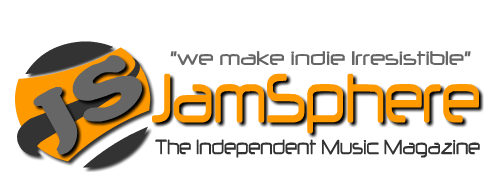

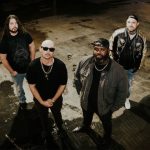
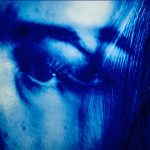
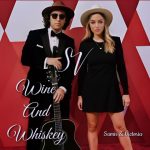

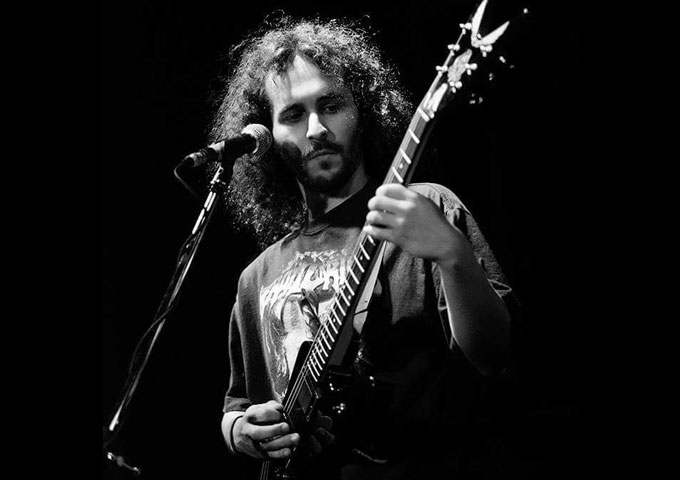

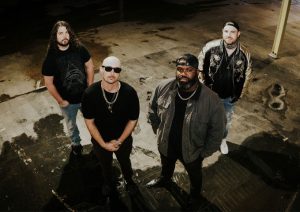
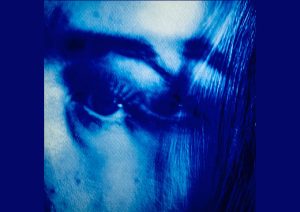

More Stories
“Hay Zeus”, Heavy History: Ty Bru on Legacy, Layers, and Letting Go at 20 Years of MTTS
The Cosmic Factory on 15 Years of Psychedelic Alchemy and the Making of ‘Lab Grown’
Detroit Soul, Modern R&B Elegance: An Interview with Reggie Braxton